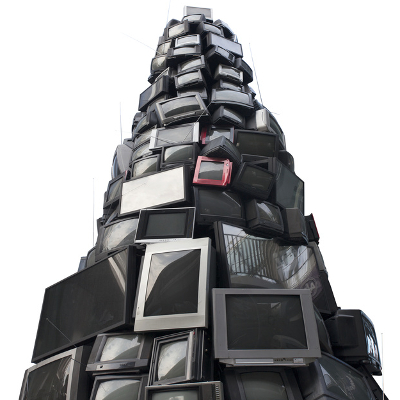- Home
- About Us
- VoIP
-
IT Services
- Managed IT Services
-
IT Security Services
- Network Security
- Unified Threat Management
- Content Filtering
- Spam Protection
- Security Cameras
- SOPHOS Security Solutions
- Email Encryption
- Cisco-Certified Solutions
- Fully Hosted Security as a Service
- Cryptolocker Removal Services Company
- Ransomware Removal
- Cybersecurity Support / Assessments
- Computer Network Support
- Cloud Computing Services
- Medical and Legal Technology
- Data Services
- Hardware Services
- Software Services
- Business Communication
- Media & Internet Services
- Understanding IT
- News & Events
- Blog
- Contact Us
- Support
XFER Blog
Why You Shouldn’t Chuck Your E-Waste In the Garbage
 Today’s society practices a policy of upgrading to brand-new devices whenever the next big thing drops. We see this all the time when businesses want to keep up with the latest trends by upgrading to new workstations that utilize recent operating systems, or because their old hardware feels slow. However, this can have a negative effect on the environment in the form of e-waste.
Today’s society practices a policy of upgrading to brand-new devices whenever the next big thing drops. We see this all the time when businesses want to keep up with the latest trends by upgrading to new workstations that utilize recent operating systems, or because their old hardware feels slow. However, this can have a negative effect on the environment in the form of e-waste.
E-waste is defined by ewasteguide.info as:
e-Waste for short - or Waste Electrical and Electronic Equipment (WEEE) - is the term used to describe old, end-of-life or discarded appliances using electricity. It includes computers, consumer electronics, fridges etc which have been disposed of by their original users. On this website - the e-Waste Guide - "e-waste" is used as a generic term embracing all types of waste containing electrically powered components. e-Waste contains both valuable materials as well as hazardous materials which require special handling and recycling methods.
In other words, your computers, servers, network components, and other hardware, all contain valuable metals and other materials that can be potentially hazardous to the environment if left unchecked. This wouldn’t normally be a problem if these materials were properly recycled, but the fact remains that e-waste is an exceptionally prevalent problem in many third-world countries that don’t have a specific workflow for getting rid of these gadgets.
Due to it being vastly cheaper to ship discarded devices overseas (rather than properly recycling them), many countries suffer from exorbitant e-waste, just like Guiyu, China. According to Slate, Guiyu has a population of around 150,000, and is known as the e-waste capital of the world. It houses many businesses that are dedicated to dismantling discarded devices for their valuable components, but their processes are often dangerous to both the inhabitants of Guiyu, and its environment.
For example, Slate explains that “to extract metals from a circuit board, the workers burn each part over an open fire; this process releases large amounts of toxic gas into the air and the town’s water supply.” This practice is naturally a cause for concern, especially considering the fact that the pollution winds up in the bloodstream of the inhabitants in the form of metals like lead, copper, zinc, etc.
The first step toward preventing this pollution from worsening is to take the proper steps when recycling your old technology. First, you should take steps to ensure that all private or sensitive data is removed from the device. XFER can help you through this process. The last thing you want is for some stranger to get ahold of your device and tamper with it for information that’s stored on it. Once you’re sure sure that no information is left on the device, we’ll handle the recycling of the device in an environmentally-friendly manner.
To ensure that you always follow the best practices of replacing and recycling your old technology, contact XFER at 734-927-6666 / 800-438-9337.
About the author
XFER has not set their biography yet



Comments